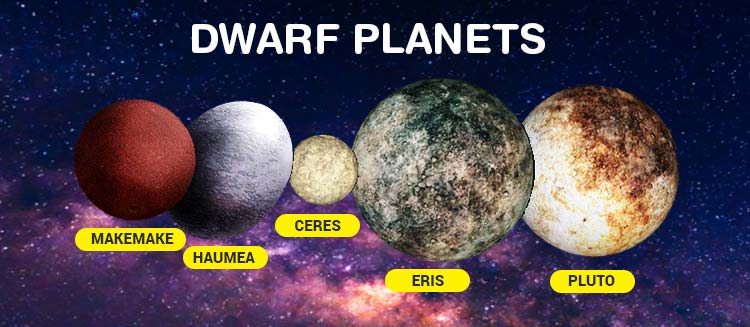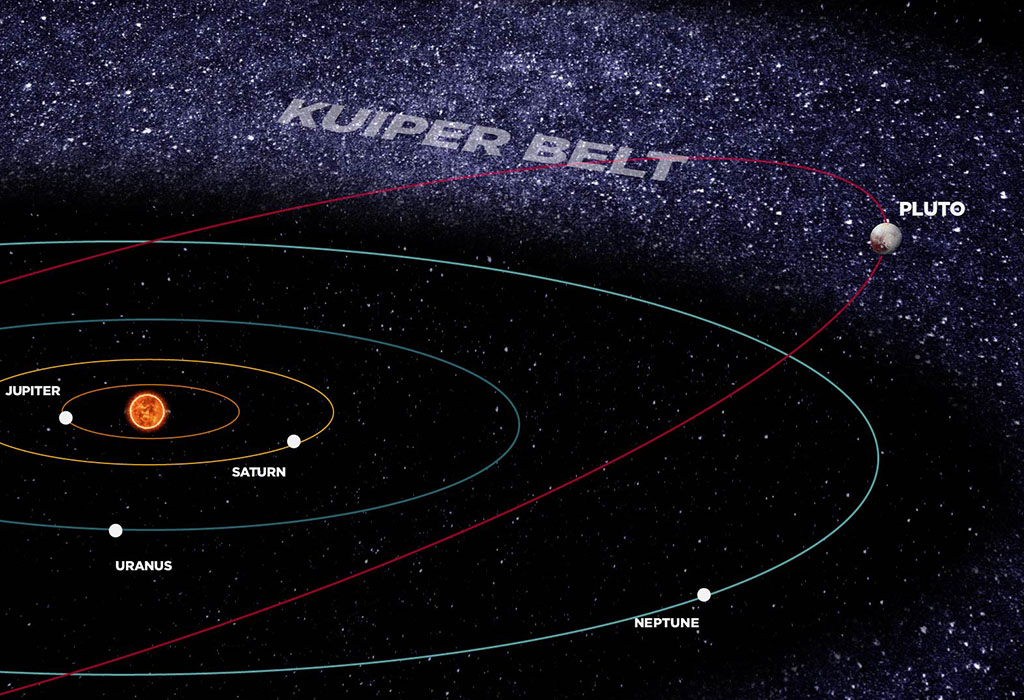The History of Pluto
PLUTO
Pluto is a dwarf planet in the Kuiper belt, a ring of bodies beyond the orbit of Neptune. It was the first and the largest Kuiper belt object to be discovered. Pluto was discovered by Clyde Tombaugh in 1930 and declared to be the ninth planet from the Sun.
| PLUTO |
Dwarf Planet
- Ceres
- Pluto
- Eris
- Haumea
- Makemake

Why Pluto is not a planet
After reclassification in 2005, Pluto is no longer classified as a planet because Pluto's gravity has not cleared its orbit of other matter and therefore it no longer fits the modern definition of a planet. n August 2006 the International Astronomical Union (IAU) downgraded the status of Pluto to that of “dwarf planet.”At the time, there was no official definition for the term ‘planet’. The IAU decided to rectify this by drawing up a short list of criteria for what a ‘planet’ could be and asking members to vote on the definition at the IAU General Assembly meeting in Prague in August 2006.
They also discussed plenty of other astronomy discoveries and voted on a few other resolutions (such as classifying asteroids, comets and a bunch of other not-planets as ‘small solar system bodies’), but the one that caused the biggest stir was Resolution 5A: Definition of ‘planet’.
 |
| Pluto shares its orbit with plenty of other celestial bodies. |
Comments
Post a Comment